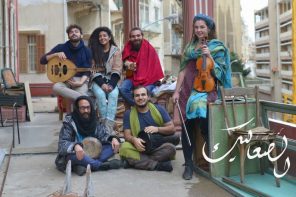“It’s funny, when you speak Arabic, your sentences don’t flow naturally. It’s as if you are translating what you want to say directly from French.”
This comment which seems harmless and innocent but rather sarcastic makes my blood boil in my veins. A feeling of shame follows which makes me want to respond back.
Yet, after noticing my interlocutor’s desperate attempt to see a grin of satisfaction in my face, I suddenly realized that she meant it as a compliment.
In my country and surely it’s not the only one, mastering the codes of western culture is a way of elevating one’s self up the social hierarchy, and it’s also a token of optimal integration with that same culture (western culture). Speaking French, dressing in western clothing and physically resembling westerners are signs of belonging to the social elite. The elite class detaches itself away and distinguishes itself from the rest of society. Thus it’s not surprising that society values more those with blue eyes or white skin over the rest, nor is it surprising that nothing attracts the attention of a restaurant waiter or a banker than the sound of a perfectly spoken French accent.
Nevertheless, this inclination and drift towards the west which characterizes much of the elite strata of not only Morocco but much of the developing world, is accompanied by a great deal of denial and denigration of the local culture in those countries. In Morocco, the elite class of society is raised and brought up rejecting this Arabo-Berber culture, despite the fact that this local culture is supposed to embody and be the backbone of a positive social advancement in the country.
Aaroub, 3aroub, or Chmax, are despicable terms that express this condescending look towards certain aspects of Arab culture.
This cultural denial is based on the dichotomy of identity that separates the elite class from the popular class, which leads each member of these classes to identify him or herself in opposition to the other. As the philosopher Agamben explains in “Homer Sacer”, society establishes itself on the trend of exception. The word “exception” comes from the Latin word “ex-capere” which means “taken from outside”or “included to exclude”. “Included to exclude” is a paradoxical expression that simply indicates that society or, for that matter, a faction of society creates itself by taking what it views as undesirable elements from within it and pushes them outside of its boundaries. In this manner, people would rather sacrifice the breathtaking beauty of the Moroccan desert for a trip to Europe. Similarly, Morocco maybe a producer of several goods that society can be proud of as Moroccan made products, yet Moroccans prefer to buy merchandise that comes from abroad because they lack confidence in the quality of locally made products.
In light of this analysis, we see can see a blind force of imitation that pushes people of the elite class to westernize themselves and identify themselves in opposition to the popular class of society. Similarly, the elite class gives as much importance to the Arabic language as it does to the locally made products, which is to say not much.
Are they the only ones?
The problem with this trend or phenomenon is that it can easily spread to the rest of society, simply because the popular class tries to imitate and resemble the elite class in its society. As Bourdieu explains in “The Distinction”, social life leads to the creation of a popular culture associated with the dominant class which represents the haves or the elite as opposed to the have-nots or the popular class. Under this view on the creation of cultures, the popular class can express its wants and desires in relation to the desires and wants of the dominant or the elite class, which leads to the point that the popular class desires all that the elite class desires.
Driven by their thirst to be included in the elite social circle, Moroccans from the popular class try to imitate the elite in several ways, one of which is trying diligently to speak French despite the fact that many of these people haven’t yet mastered the language. Another example of imitation is that of dressing like the elite. I wrote more details about this in another article.
This is not to say that French should be banned in order to solve this problematic phenomenon of denial of the Arabo-Berber culture. Rather, it’s better to find a way so that these two cultures can co-exist as equals without one overtaking the other.
Are the French schools and private schools responsible?
What is more paradoxical than denouncing the phenomenon of denial of Arabic culture, and doing so in an article written in English? That’s a bit much, I agree. Unfortunately, I myself am a prisoner of this social structure which I speak about in this article. Effectively, there is a mixture of pragmatism and usefulness in everyday life, which pushes Moroccans to favor the use of French over Arabic.
Evidently, French and private schools which provide the better education than other public schools are effectively dominated by the upper and middle-classes and that reinforces the social structure already in place. Nevertheless, the error that many people commit is that of holding French schools solely responsible for this problem. It is not the schools’ teaching quality of Arabic that’s problematic, rather it is the approach taken by the students towards their language and culture that is the problem. Thus the parents of these students should be held responsible for failing to instill in their children the richness and importance of their local culture, favoring instead to use French because of the relative ease of doing so in everyday life.
I’m not criticizing the use of French in Morocco; this is an entirely different debate. I’m rather looking to bring attention to this trend of denial of the Arabo-Berber culture in Morocco.
Yes, I went to French schools since kindergarten, and yes I learned classic Arabic, studied the poetry of Abou Al-Kacem Al-Chabi, the philosophy of Al-Jabiri, and I read several books by the Great Naguib Mahfouz. I can’t claim that I’ve mastered the Arabic language to perfection, despite the fact that I wish to do so with all my heart, but I disagree with the claim that the proper conditions of learning Arabic are not available. The question is not about the quality of teaching; rather it is about the willingness to learn. This willingness has to come from the students themselves.
Moreover, the lack of interest in the Arabic language, can’t be blamed only on the spread of French schools, because even public schools are not much better in creating the conditions where learning Arabic can be interesting and lively. Is this an inherent problem in the Arabic language itself? Maybe its complexity contributes to the problem, but this is another debate.
Meanwhile, whatever your social class maybe, be proud of your language and culture, because they are what makes you different from the rest of the world.
Translated by Omer Kassim








